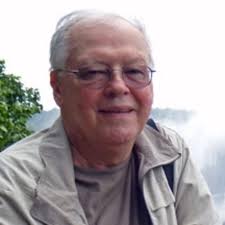Lawrence Hightower
Professor Emeritus
Retired: 2007
Currently: Founding Editor-In-Chief, Cell Stress and Chaperones
Education: Ph.D. Harvard University; Postdoctoral study, University of Massachusetts Medical Center
Research Interests: Cellular stress responses; development of molecular and cellular biomarkers of cellular stress in humans and for environmental monitoring; mechanisms of molecular chaperone action; mechanisms of hyperbaric oxygen effects in cells/tissues and cytoprotection of human cells.
Selected Publications:
Noonan, Emily J., Giardina, Charles, Hightower, Lawrence E. 2008. Hsp70B’ and Hsp72 form a complex in stressed human colon cells and each contributes to cytoprotection. Experimental Cell Research 314(13): 2468-76, DOI: 10.1016/j.yexcr.2008.05.002.
Godman CA, Chheda, KP, Hightower LE, Perdrizet G, Shin D-G, and Giardina, C. 2010. Hyperbaric oxygen induces a cytoprotective and angiogenic response in human microvascular endothelial cells. Cell Stress Chaperones, 15(4): 41-442. DOI 10.1007/s12192-009-0159-0.
Fuller, AM, Giardina, C, Hightower, LE, Perdrizet, GP, and Tierney, CA. 2012. Hyperbaric oxygen preconditioning protects skin from UV-A damage. Cell Stress Chaperones 18(1): 97-107. DOI 10.1007/s12192-012-0362-2.
Verma R, Chopra A, Giardina C, Sabbisetti V, Smyth J, Hightower LE, Perdrizet GA. 2015. Hyperbaric oxygen therapy (HBOT) suppresses biomarkers of cell stress and kidney injury in diabetic mice. Cell Stress Chaperones 20(3): 495-505. DOI 10.1007/s12192-015-0574-3.

| lawrence.hightower@uconn.edu | |
| Phone | 860-486-6304 |
| 860-486-4329 | |
| Fax | 860-486-4331 |
| Mailing Address | 91 North Eagleville Road, Unit 3125, Storrs, CT 06269-3125 |
| Office Location | Torrey Life Sciences 408 |